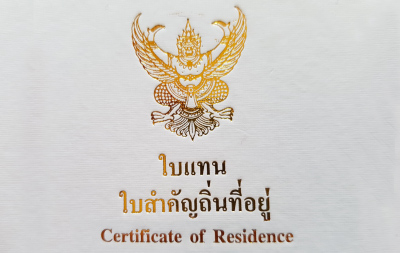Thailand permanent residency is a significant milestone for foreign nationals seeking long-term integration into the country without the need for visa renewals. However, the process is highly selective, document-intensive, and available only to a limited number of applicants per year. This article provides a comprehensive analysis of the legal framework, eligibility paths, procedural intricacies, limitations, and strategic considerations surrounding Thai permanent residency.
1. Legal Framework and Quota System
Permanent residency in Thailand is governed by the Immigration Act B.E. 2522 (1979) and subsequent ministerial regulations issued by the Ministry of Interior. Each year, the Thai government sets a quota, usually limiting PR approvals to 100 persons per nationality annually.
Permanent residence does not confer citizenship, but it allows the holder to live and work in Thailand indefinitely without requiring annual visa extensions.
2. Core Benefits of Thai Permanent Residency
-
No need for visa renewals or 90-day reporting (though notification of address changes is still required).
-
Eligibility to apply for Thai citizenship after holding PR for a minimum of 5 consecutive years.
-
Permission to buy condominium units without transferring funds from abroad.
-
Easier to apply for long-term visas for family members.
-
Eligible to become a director of a Thai public company without work permit renewal constraints.
-
Possibility to be included on a house registration document (Tabien Baan).
-
Streamlined work permit process with fewer restrictions.
3. Eligibility Criteria for Thai Permanent Residency
Applicants must meet baseline criteria and apply under one of several categories.
3.1 General Requirements (All Categories)
-
Must have held a non-immigrant visa (category B, O, or O-A) for at least 3 consecutive years.
-
Must have 3 consecutive yearly visa extensions at the time of application.
-
Must reside in Thailand continuously prior to applying (absences are allowed but must be minimal).
-
Clean criminal record in Thailand and home country.
-
Demonstrated financial stability, legal income, and a tax payment history.
4. Categories of Application for Thai PR
Applicants must choose one category under which they apply. Each has its own documentation requirements and evaluation criteria.
4.1 Investment Category
-
Must invest at least THB 10 million in Thailand through approved channels:
-
Thai government bonds.
-
Fixed deposits in Thai banks.
-
Investment in registered Thai companies.
-
-
Funds must originate from abroad and be legally transferred into Thailand.
-
Proof of investment and compliance with the Bank of Thailand’s regulations is required.
4.2 Business or Employment Category
-
Must have held a work permit for at least 3 consecutive years with the same or related employer.
-
Annual income must meet the minimum thresholds:
-
THB 80,000 per month for most professionals.
-
THB 50,000 per month if married to a Thai national.
-
-
The employer must show financial stability, a positive tax record, and Thai employee ratios.
-
Applicant must demonstrate economic contribution, such as skills, taxes paid, and business impact.
4.3 Humanitarian Reasons Category (Family Ties)
-
Applicable to those with Thai family members, such as:
-
Spouse (must be legally married).
-
Thai child or adopted child.
-
Thai parents.
-
-
Must provide proof of long-term support and cohabitation.
-
In spousal cases, marriage must have lasted for at least 5 years, or 2 years with a child.
4.4 Expert or Academic Category
-
For those working in academic, scientific, or research fields that benefit Thailand.
-
Must present evidence of recognized achievements, publications, or technological contributions.
-
Letters of recommendation from Thai institutions or government bodies are often required.
5. The Application Process in Detail
The PR application process typically opens once a year, usually around October to December, at the Royal Thai Immigration Bureau (Bangkok).
5.1 Step-by-Step Breakdown
-
Document Preparation:
-
Passport copies.
-
Non-immigrant visa and extension records.
-
Tax returns for the last 3 years (PND 91 for employees).
-
Bank statements.
-
Lease agreement or property ownership document.
-
Criminal record check from Thai Police and home country.
-
Health certificate (in some cases).
-
Employer documents (for business/employment category).
-
Thai language proficiency test (oral interview conducted by Immigration).
-
-
Submission of Application:
-
Applications submitted in person at the Immigration Bureau in Bangkok.
-
Application fee: THB 7,600 (non-refundable).
-
After submission, applicants receive a receipt and queue number.
-
-
Interview and Background Checks:
-
Applicants attend an interview in Thai, recorded on video.
-
Language proficiency is evaluated—understanding and speaking Thai is essential.
-
Background checks are conducted in coordination with the Police, National Intelligence Agency, and Ministry of Foreign Affairs.
-
-
Final Approval by Ministry of Interior:
-
The Immigration Commission reviews and forwards eligible applications to the Minister of Interior, who grants final approval.
-
The process typically takes 6 to 12 months, though delays are not uncommon.
-
-
Issuance of Residency Certificate and Alien Registration Book:
-
Once approved, the applicant receives a Certificate of Residence and is registered in the household registration (Tabien Baan) of their residence.
-
Must apply for a pink alien ID card at the local district office.
-
A one-time residence fee is payable:
-
THB 191,400 for most applicants.
-
THB 95,700 for spouses/children of Thai citizens.
-
-
6. Legal Considerations and Long-Term Responsibilities
6.1 Conditions After Obtaining PR
-
Must notify Immigration of place of residence every 5 years (instead of 90-day reporting).
-
Cannot remain outside of Thailand for over 1 consecutive year without prior permission.
-
Must renew alien ID card every 10 years (or when conditions change).
6.2 Pathway to Thai Citizenship
-
PR holders may apply for Thai nationality after 5 years of holding PR status.
-
Must demonstrate:
-
Fluency in Thai.
-
Consistent income and taxes paid.
-
Integration into Thai society.
-
-
Citizenship applications are evaluated by the Department of Provincial Administration under the Ministry of Interior and can take 1–3 years for processing.
7. Strategic Considerations and Practical Advice
-
Language proficiency is critical—Thai is the medium of interview and a key determinant in evaluation.
-
Tax and financial records must be clean and consistent; discrepancies can result in rejection.
-
Consider applying via family category if married to a Thai citizen or have a Thai child—it’s often more straightforward.
-
Seek professional legal support for document preparation, especially for investment or employment categories.
-
Note that PR status can be revoked in cases of legal violations, fraudulent applications, or long-term absences without permission.
Conclusion
Thailand’s permanent residency offers an attractive long-term solution for foreigners seeking stability, legal recognition, and integration. While the process is selective and procedurally complex, those who meet the criteria and navigate the requirements with diligence can secure one of the most coveted immigration statuses in Thailand.


